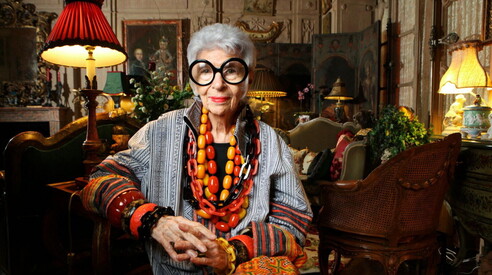L'articolo in inglese di Michael Ledeen per Il Foglio, oggi in edicola
L'iran libero nasce nel sangue
Days before the “election” of June 12th, it was already obvious that Iran was building toward open confrontation. The hatred an awful lot of Iranians harbor for the regime was obvious, and was played out in the streets of Tehran and many other cities across the country.
Days before the “election” of June 12th, it was already obvious that Iran was building toward open confrontation. The hatred an awful lot of Iranians harbor for the regime was obvious, and was played out in the streets of Tehran and many other cities across the country. Reporters in Tehran used very strong language to describe the anti-regime demonstrations:
From the London Times:
It was open insurrection, a rebellion of a sort seldom seen in the 30-year history of the Islamic Republic, an eruption of pent-up rage against the repressive Government of President Ahmadinejad.
“Death to the Government,” chanted the several thousand Iranians packed into a football stadium in Tehran. “Death to dictators,” roared the young men and women, draped in green shirts, ribbons, bandanas and headscarves to signal their support for Mir Hossein Mousavi.
From the Wall Street Journal:
Tens of thousands of demonstrators formed a 12-mile human chain across Iran's capital city Monday, chanting for change, in scenes reminiscent of the 1979 revolution.
These are accounts of two different demonstrations, one in a football stadium, the other on the main street in downtown Tehran. Both cited demonstrators shouting "Death to the dictator," "Death to the government of lies," and other phrases that left no doubt about their desires: they wanted an end to the oppressive regime.
Their candidate was the former prime minister, Mir Hossein Mousavi, an architect who designed some of the most oppressive features of the Islamic Republic when the Ayatollah Khomeini was the country's Supreme Leader, and who has been absent from public life for twenty years. Long known as an uninspiring figure, he proved during the campaign that he was also a boring speaker, and an ineffective debater (he was beaten badly in a televised debate with President Ahmadinezhad). Yet he is now the inspirational leader of a revolutionary mass movement. How did this happen?
For one thing, he is not Ahmadinezhad, for whom there is a lot of hatred. The leadup to the electoral circus took place against a background of mounting repression, featuring public executions of many young people (some said to be homosexuals), mass arrests, summary closing of the few remaining quasi-independent publications, increased censorship of telephone and internet communications, and a lot of nasty action against young people who did not meet the strict dress code and decorum rules imposed by the theocratic dictatorship.
That so many people would openly defy such a regime was a clear indication that the Iranian people were prepared to challenge Khamenei and Ahmadinejad. It was clear for many years that most Iranians wanted to be part of the Western world, not members of a country that was stigmatized for its support of terrorism, its misogyny, and its denial of the Holocaust.
In that way, some viewed Mousavi as similar to the failed "reformer," Mohammad Khatami, who was unexpectedly elected president in 1997. As I wrote at the time, Khatami was the empty vessel into which the Iranian people had poured their passionate desire for freedom. Khatami did not reform much of anything, and many Iranians came to view him as a stalking horse for the regime's hard-liners, luring dissidents into the open so that they could be marginalized, tortured, incarcerated and murdered.
But Mousavi is different, and almost everyone missed the evidence: the big difference is his wife. As the Times put it:
The biggest roar of the afternoon was reserved for the main speaker, Zahra Rahnavard, Mr Mousavi's wife. “You're here because you don't want any more dictatorship,” she declared. “You're here because you hate fanaticism, because you dream of a free Iran, because you dream of a peaceful relationship with the rest of the world.” The candidate himself was nowhere to be seen...
That Ms Rahnavard became so important was a big surprise, and perhaps revolutionary in itself. As we all know, women are diminished in the Islamic Republic (as throughout much of the "Islamic world"), to an extent unthinkable in civilized countries. Women are officially worth half a man, have no property rights, have little formal say in the education of their children, have severely limited job opportunities (Khomeini ranted against the shah's regime in no small part because women were permitted to teach boys) and of course are compelled to cover their bodies, including their hair, lest the sight of them corrupt the otherwise virtuous men. Even Shirin Ebadi, the winner of a Nobel Peace Prize, is regularly silenced or put under virtual house arrest when the rulers decide they've had enough of her prattle about human rights.
All of a sudden, Mrs. Mousavi became a national political figure. Other women have emerged from time to time to play public roles in political melodramas, but nothing like this has happened in the history of the Islamic Republic. The very fact of her political role is explosive. In many ways, it threatens the foundations of the system, for if women are granted equality with men (and this is one very clear message of the Mousavi campaign; it is demonstrated by her presence, by the words she uses, and by the enthusiasm she has inspired), the whole structure of the Khomeinist regime can be called into doubt.
Everybody in Iran recognizes this. The mystery is why she was been permitted to do it. To put the matter bluntly, Supreme Leader Ali Khamenei could have put a stop to it at the very outset of the campaign, but did not. This was a colossal mistake. Why did he make it?
Many months ago I was told that Khamenei was gravely concerned about the future of the regime, that he had concluded that there was so much hatred by so many people that it was impossible to continue to govern by repression, and that Ahmadinezhad's aggressive domestic and foreign policy threatened everything that had been constructed over the course of the past thirty years. The people telling me these things were friends of Mousavi, and they accurately predicted that Mousavi was going to run, and that he would have surprising public support. They also said that Khamenei had encouraged Mousavi to run, precisely because he, the Supreme Leader, was prepared to grant greater freedom to the Iranian people and to normalize relations with the West.
It sounded unlikely to me, but then Khamenei is gravely ill and reportedly uses large quantities of opium to ease the pain of an incurable cancer. Under such circumstances, surprising behavior becomes rather more conceivable than it would under "normal" circumstances (I put "normal" in quotation marks because there is very little about the Islamic Republic that any of us would consider normal).
On the other hand, it was hard to imagine that the regime would simply step back and let Mrs. Mousavi transform Iran into a tolerant country with friendly relations with us and the rest of the Western world. There are powerful forces--the hoodlums known as the Basij, and significant chunks of the Revolutionary Guards--whose religious fervor is genuine, and who were undoubtedly prepared to fight for its survival, no matter how many people demonstrated in the cities. And they have a lot going for them, including a monopoly of guns, tanks, helicopters (recently reported to be dropping acid on demonstrators) and of course the prisons, with their infamous torture cells.
Yet the mullahs make countless mistakes. They were defeated by the United States and its allies in Iraq. They have just been humiliated by the Lebanese people in an election most smart people thought Hezbollah was going to win. And somehow they seem not to have developed an atomic bomb just yet, after a good twenty years of trying, and despite the best efforts of friends in Pakistan, Russia, Georgia, China, North Korea and even Germany. And they've wrecked the national economy, despite a tsunami of petrodollars. That's quite an impressive record of incompetence.
The Iranian people have suffered from the effects of that incompetence, and they want an end to it. And this explains, I think, why Mousavi--who has been totally out of power for two decades–was the most attractive of the four candidates running for the presidency.
Until quite recently, the Iranians did not believe they could do such a thing on their own. They believed they needed outside support, above all American support, in order to succeed. They thought that Bush would provide that support, and they were bitterly disappointed. But nobody believed that Obama will help them, and they knew that they were on their own.
Any hope they might have had in the Obama White House was quickly dismissed in the administration's first two statements on the matter. The first came from the president himself, anticipating a Mousavi victory (it is too soon to speculate on the source of this happy thought), and of course, in his narcissistic way, taking personal credit for it:
``We are excited to see what appears to be a robust debate taking place in Iran and obviously, after the speech that I made in Cairo, we tried to send a clear message that we think there's a possibility of change and, ultimately, the election is for the Iranians to decide but just as what has been true in Lebanon, what can be true in Iran as well, is that you're seeing people looking at new possiblities, and whoever ends up winning the election in Iran, the fact that there's been a robust debate hopefully will help advance our ability to engage them in new ways.''
I've reread the Cairo Sermon, and I can't find a single word calling for freedom for the Iranian people. Au contraire, Obama's words about Iran were penitent, apologizing for the American role, back in 1953, in removing what the president called an elected government (Mossadeq, that is. Except that he was appointed by the shah, not elected at all). But then, history is not his strong suit.
Once it became clear that Ahmadinezhad was staying, the White House, while expressing skepticism about the accuracy of the vote count, nonetheless insisted that it might be good news after all:
“The dominant view among Obama administration officials is that the regime will look so bad as a result of whipping up Iranian hopes for democracy and then squelching them that the regime may feel compelled to show some conciliatory response to Obama's gestures of engagement.”
That might have been true if the regime were interested in winning a few points in the next American public opinion poll, but they knew they were fighting for survival. Everybody now knows that most Iranians hate the regime, and a lot of them are not quietly going home and getting ready to soldier on for the next four years of brutal repression, seeing their oil revenues sent to Hamas, Hezbollah, Islamic Jihad and al Qaeda, and to the nuclear weapons program rather than to their own increasingly miserable circumstances. They are making a stand.
The Iranians do not expect any help from the outside world. Bush did not help them, to his shame, and nobody thinks Obama would lift a finger for Iranian dissidents. They're on their own, just as the Lebanese voters were. And, just as many Lebanese decided that they'd better take a stand against Hezbollah before all hope for freedom was lost, many Iranians reasoned the same way.
Still, it would not have been possible without the transformation of Mir Hossein Mousavi into a revolutionary leader. And the key to that transformation is the movement that claims him as its leader. The people are only just beginning to understand the reality of their situation. Virtually none of them imagined that they would be in a revolutionary confrontation with the regime just two days after the electoral circus, and few of them can fully realize, so soon, that they can actually change the world. But they are getting there, as are the Mousavis, who clearly know that they are either going to win or be destroyed.
So far the West has done virtually nothing, except express concern, and call for sweet reasonableness. Good luck with that! What should the West do? Support freedom in Iran. Nothing would so transform the region as a free government, dedicated to good relations with the West. Such a government would end the profligate spending on terrorism and devote the country's resources to domestic concerns. Hezbollah, Hamas, Islamic Jihad, the Taliban, and the other jihadis, would be dramatically weakened. Syria's Bashar Assad would suddenly find himself without his big brother in Tehran. If you want to dream of peace in the Middle East, a free Iran is at the heart of your Utopia.
Finally, for those who unaccountably continue to believe that the most important thing in the Middle East is the Arab-Israeli conflict, the best chance is once again a free Iran that worries about Iranians instead of Palestinians. There is no chance of peace so long as Tehran runs the terror movements. But if the terrorists have to raise their own money, find their own weapons, and train their own killers, things might get a lot easier.
Michael Ledeen
(Michael Ledeen è uno storico americano. E' nella direzione di National Review Online. In passato è stato consulente del National Security Council, del dipartimento di Stato e della Difesa. Ha pubblicato più di venti libri e scrive sul Wall Street Journal e sulla National Review Online)


Il Foglio sportivo - in corpore sano
Fare esercizio fisico va bene, ma non allenatevi troppo



